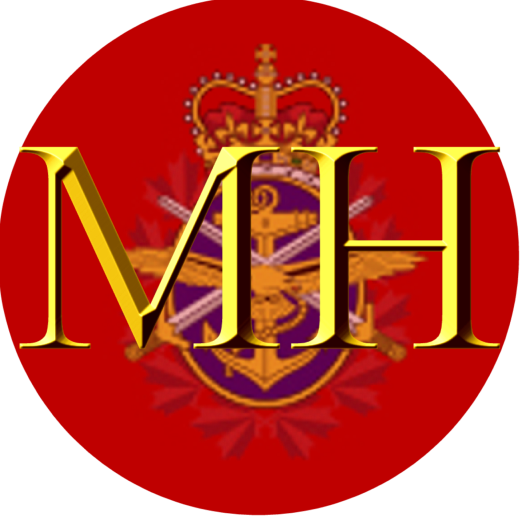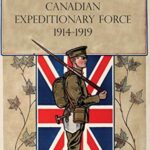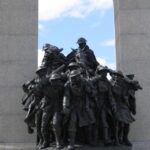1. George F.G. Stanley, “The Birth of Western Canada: A History of the Riel Rebellions”
- Stanley’s classic work covers both the Red River Rebellion and the Northwest Rebellion, offering a detailed analysis of the military actions taken during the 1885 conflict. It provides insights into military strategies, battles, and the key figures involved, including Louis Riel and Gabriel Dumont.
2. Desmond Morton, “The Last War Drum: The North West Rebellion of 1885”
- Morton’s book is one of the most comprehensive accounts of the Northwest Rebellion. It delves into the military operations, the role of the Métis and Indigenous forces, the mobilization of the Canadian militia, and the use of the North West Mounted Police in the conflict.
3. Brian A. McConnell, “Rebellion: The Rising in French Canada 1837-38 and the North-West Rebellion of 1885”
- McConnell provides a comparative look at two of Canada’s major uprisings, with a focus on the military strategies and outcomes of the Northwest Rebellion. His work covers the key military engagements, the role of Métis leader Gabriel Dumont, and the effectiveness of Canadian forces.
4. Carman Miller, “A Knight in Politics: A Biography of Sir Frederick Borden”
- This biography of Sir Frederick Borden, Canada’s Minister of Militia and Defence, includes a detailed account of the military aspects of the Northwest Rebellion. It examines how the rebellion shaped Canadian military policies and the deployment of the militia.
5. Winston Churchill, “The Prairie War: The Rebellion of 1885 and the Settling of Western Canada”
- Churchill’s book offers a detailed narrative of the Northwest Rebellion, focusing on the military engagements between the Métis and Indigenous forces, led by Louis Riel and Gabriel Dumont, and the Canadian militia. It covers the key battles, including Duck Lake and Batoche.
6. Bob Beal and Rod Macleod, “Prairie Fire: The North-West Rebellion, 1885”
- This well-researched book provides a comprehensive military history of the Northwest Rebellion, covering the key engagements and the involvement of the Canadian militia. It explores the strategies of both the Métis forces and the Canadian government.
7. George Woodcock, “Gabriel Dumont: The Métis Chief and His Lost World”
- Woodcock’s biography of Gabriel Dumont, the military leader of the Métis forces, provides a detailed look at his role in the Northwest Rebellion. It covers Dumont’s leadership, military tactics, and the battles fought between the Métis and Canadian forces.
8. David J. Hall, “Clifford Sifton: A Lonely Eminence, 1896-1919”
- Although focused on a later period, Hall’s work provides context for the role of political figures like Clifford Sifton in shaping military policy after the Northwest Rebellion. The book offers insights into how the rebellion influenced Canada’s approach to Indigenous and Métis issues.
9. T.F. Mills, “The Canadian Militia and the North-West Rebellion of 1885”
- Mills’ work provides a focused analysis of the role of the Canadian militia during the Northwest Rebellion. It covers the mobilization, logistics, and military strategies of the militia forces as they confronted the Métis and Indigenous rebels.
10. R.G. MacBeth, “The Making of the Canadian West: The Life and Times of Louis Riel”
- MacBeth’s work covers the political and military aspects of the Northwest Rebellion, focusing on Louis Riel’s leadership and the role of the Canadian military in quelling the uprising. The book provides detailed accounts of key battles and military decisions.
11. Desmond Morton, “A Military History of Canada”
- This broad overview of Canadian military history includes a significant section on the Northwest Rebellion, with a focus on the military engagements, the strategies employed by the Canadian militia, and the rebellion’s impact on Canada’s military development.
12. J.R. Miller, “Skyscrapers Hide the Heavens: A History of Native-Newcomer Relations in Canada”
- Miller’s work provides a broader context for the Northwest Rebellion, examining how Indigenous and Métis grievances led to the uprising. It covers the military aspects of the conflict and how it shaped future relations between Indigenous peoples and the Canadian government.
13. Blair Stonechild and Bill Waiser, “Loyal Till Death: Indians and the North-West Rebellion”
- This book focuses on the role of Indigenous peoples in the Northwest Rebellion, particularly those who allied with the Métis and Louis Riel. It examines the military tactics used by Indigenous forces and their interactions with the Canadian militia.
14. Thomas Flanagan, “Louis ‘David’ Riel: Prophet of the New World”
- Flanagan’s biography of Louis Riel provides a detailed account of his military leadership during the Northwest Rebellion. It covers Riel’s religious and political motivations, his role in the military aspects of the uprising, and his ultimate defeat.
15. Heather Devine, “The People Who Own Themselves: Aboriginal Ethnogenesis in a Canadian Family, 1660-1900”
- Devine’s work examines the Métis people in Western Canada, with a focus on their role in the Northwest Rebellion. The book covers the military strategies employed by the Métis and their resistance to Canadian government forces.
16. Jean Teillet, “The North-West Is Our Mother: The Story of Louis Riel’s People, the Métis Nation”
- Teillet’s book provides a comprehensive history of the Métis Nation, with significant attention to the military aspects of the Northwest Rebellion. It covers the battles, strategies, and consequences of the conflict for the Métis people.
17. Douglas N. Sprague, “Canada and the Métis, 1869-1885”
- Sprague’s work covers the political and military context leading up to the Northwest Rebellion, focusing on the grievances of the Métis and Indigenous communities. It includes detailed accounts of the military operations undertaken by both sides.
18. W.S. Wallace, “The Growth of Canadian National Feeling”
- Wallace’s book explores how the Northwest Rebellion played a role in the development of Canadian national identity, particularly through the military actions taken by the Canadian government to suppress the uprising.
19. George Bryce, “The Romantic Settlement of Lord Selkirk’s Colonists”
- While focused on earlier events in the Red River Settlement, Bryce’s work provides valuable background on the social and political tensions that led to the Northwest Rebellion. It includes insights into how military conflicts shaped the settlement of Western Canada.
20. James Dempsey, “Warriors of the King: Prairie Indians in World War I”
- Though focused on a later period, Dempsey’s book offers insights into the military traditions of Indigenous peoples in the Canadian prairies, many of whom participated in the Northwest Rebellion. It provides context for their role in military engagements before and after the rebellion.
These references provide a comprehensive overview of the military aspects of the Northwest Rebellion, including the strategies and tactics of the Métis, Indigenous, and Canadian forces. They also explore the broader political and social consequences of the rebellion for Canada.



